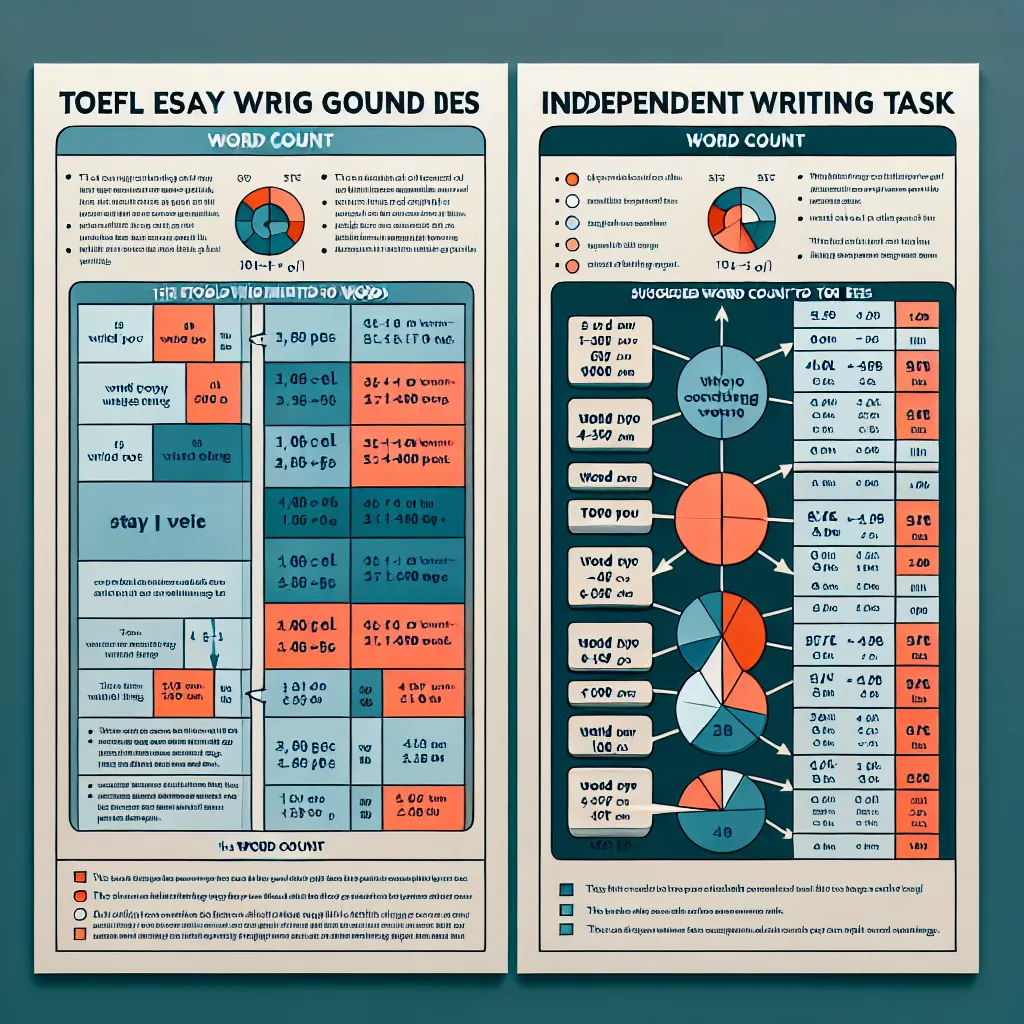Are you preparing for the TOEFL exam and wondering about the ideal word count for your essays? You’re not alone. Many test-takers struggle with this question, as it’s crucial to strike the right balance between content and length. In this comprehensive guide, we’ll explore the optimal word count for TOEFL essays and provide you with valuable insights to help you excel in the writing section.
Understanding TOEFL Essay Word Count Requirements
The Official Guidelines
Before we dive into the details, it’s essential to understand that the TOEFL iBT (Internet-based Test) doesn’t specify an exact word count requirement for essays. Instead, ETS (Educational Testing Service), the organization that administers the TOEFL, provides recommended word counts for each essay task.
- Integrated Writing Task: 150-225 words
- Independent Writing Task: 300-350 words
These recommendations serve as guidelines rather than strict rules. However, it’s crucial to aim for these ranges to ensure you’ve adequately addressed the task and demonstrated your English proficiency.
 TOEFL essay word count guidelines
TOEFL essay word count guidelines
Why Word Count Matters
You might be wondering why word count is important if there’s no strict requirement. Here are a few reasons:
- Content Development: A sufficient word count allows you to fully develop your ideas and arguments.
- Time Management: Knowing the target word count helps you pace yourself during the exam.
- Scoring Considerations: While not explicitly stated, essays that fall significantly short of the recommended word count may receive lower scores due to insufficient content.
Strategies for Meeting TOEFL Essay Word Count Goals
1. Practice Timed Writing
One of the best ways to ensure you can meet the recommended word count is to practice writing essays within the time constraints of the actual test. Here’s how:
- Set a timer for 20 minutes for the Integrated task and 30 minutes for the Independent task.
- Write your essay, aiming for the recommended word count.
- Review your essay and count the words.
Regular practice will help you develop a sense of how much you can write within the given time frame.
2. Outline Your Essay
Creating a quick outline before you start writing can help you organize your thoughts and ensure you have enough content to meet the word count. Include:
- Main ideas for each paragraph
- Key supporting points
- Examples or evidence
This strategy will help you avoid writer’s block and maintain a steady flow of ideas throughout your essay.
3. Elaborate on Your Ideas
If you find your essay falling short of the recommended word count, try elaborating on your ideas:
- Provide more specific examples
- Explain your points in greater detail
- Address potential counterarguments
Remember, quality is more important than quantity. Don’t add unnecessary words just to reach the word count.
4. Use Transition Words and Phrases
Incorporating transition words and phrases not only improves the flow of your essay but can also help you reach the recommended word count. Some examples include:
- Furthermore
- In addition
- On the other hand
- As a result
- In conclusion
Common Mistakes to Avoid
When aiming for the recommended word count, be careful not to fall into these common traps:
-
Wordiness: Don’t use unnecessary words or phrases just to increase your word count. This can make your writing less clear and effective.
-
Repetition: Avoid repeating the same ideas in different words. Instead, focus on developing new points or providing additional evidence.
-
Off-topic content: Stay focused on answering the essay prompt. Adding irrelevant information to reach the word count will hurt your score.
-
Neglecting revision: Don’t spend so much time writing that you have no time to review and revise your essay. Always leave a few minutes for proofreading.
 TOEFL essay writing tips
TOEFL essay writing tips
Tools for Word Count Management
While you won’t have access to word count tools during the actual TOEFL exam, using them during practice can be helpful. Here are some options:
- Microsoft Word or Google Docs: These word processors have built-in word count features.
- Online word counters: Websites like WordCounter.net can quickly count your words.
- TOEFL practice software: Some TOEFL preparation software includes word count features in their essay writing modules.
Remember, these tools are for practice only. During the actual test, you’ll need to estimate your word count based on your writing experience.
Beyond Word Count: Focusing on Quality
While meeting the recommended word count is important, it’s crucial to remember that the quality of your writing matters more than the quantity. TOEFL essay raters are looking for:
- Clear organization and development of ideas
- Appropriate use of grammar and vocabulary
- Coherent and well-supported arguments
- Accurate use of English language conventions
Aim to strike a balance between meeting the word count recommendations and producing a well-written, thoughtful essay.
Next Steps: Perfecting Your TOEFL Essay Skills
Now that you understand the importance of word count in TOEFL essays, here are some steps you can take to improve your writing skills:
- Practice regularly: Set aside time each week to write practice essays under test-like conditions.
- Seek feedback: Have a teacher, tutor, or study partner review your essays and provide constructive criticism.
- Read sample essays: Familiarize yourself with high-scoring TOEFL essays to understand what raters are looking for.
- Expand your vocabulary: Learn new words and phrases to express your ideas more effectively and concisely.
- Take practice tests: Use official TOEFL practice materials to simulate the actual test experience.
By following these guidelines and consistently practicing, you’ll be well-prepared to write strong, well-structured essays that meet the recommended word count for the TOEFL exam. Remember, the goal is not just to reach a certain number of words, but to effectively communicate your ideas in clear, coherent English. Good luck with your TOEFL preparation!




